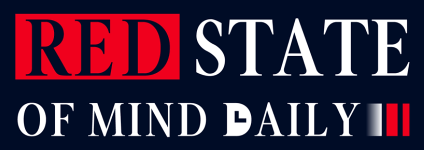Red State News encompasses all the news you need to know if you are hoping all states can become red states. These are critical issues for conservative voters, such as the right to bear arms, the right to free speech and worship, and the right of the unborn to live. If you’re passionate about red state issues and find yourself ready to increase your awareness about vital voting issues for conservative Americans, it’s time to subscribe.
Red State of Mind Daily’s Red State News takes a look at news from across the country, focusing on how the news of the day will impact you, your faith, your family, and your community.











